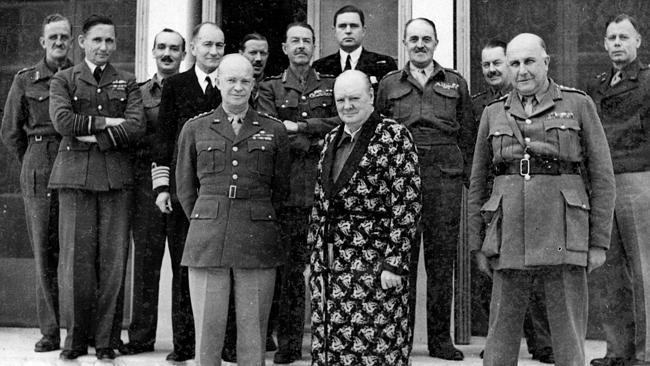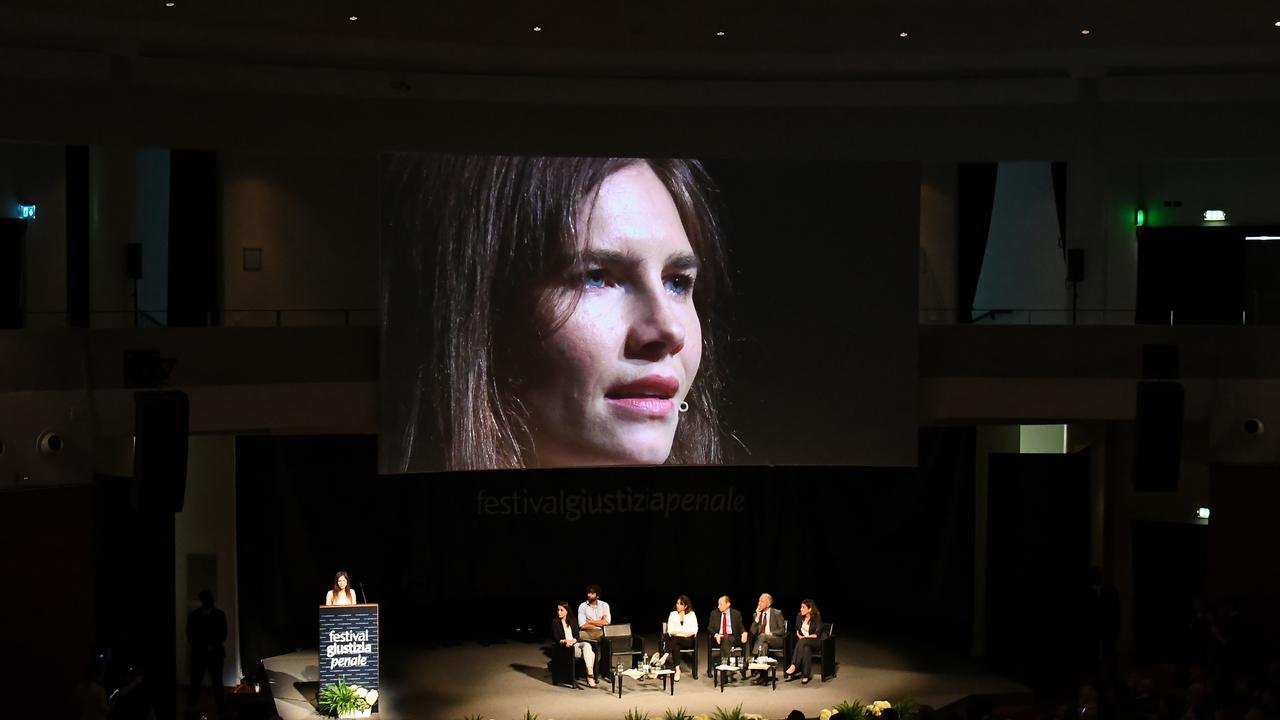Winston Churchill, the last of his kind
A STUDY of the ‘literary Churchill’ highlights a man of complexity, magnamity and endless fascination.

ANYONE who came to consciousness in the long wake of World War II knows about Winston Churchill as the last titan of a more heroic age. The round, bald head, the booming rumble of a voice, the cigar: these are the insignia of the man who beat Hitler, who stood up for democracy when the Nazi swastika might have ruled the earth. When historian Simon Schama was a boy his Jewish father showed him a sign on a railway crossing wall, “Judah beware!”, and said that if he ever heard anyone have a go at Churchill he should remember he had made Britain stand up for their people and for freedom when the lights were going out in Europe, morally and militarily.
How could we forget the great speeches?
“We shall fight on the beaches, we shall fight on the landing grounds, we shall fight in the fields and in the streets, we shall fight in the hills; we shall never surrender, and even if, which I do not for a moment believe, this island or a large part of it were subjugated and starving, then our empire beyond the seas, armed and guarded by the British fleet, would carry on the struggle, until, in God’s good time, the new world, with all its power and might, steps forth to the rescue and the liberation of the old.”
We knew these words the way we knew the “we few, we happy few, we band of brothers” speech from Henry V which had an influence on Churchill’s great hymns of war, which he used to compose in blank verse and then rework in prose. Better, in fact, because they were more recent and their stirring rhetoric was associated with the excitement and glamour of the Battle of Britain and those extraordinary RAF flying aces who went out to encounter the Luftwaffe during the Blitz.
Yes, Churchill was a figure of some grandeur. And when this man, who refused the dukedom his ancestor Marlborough had accepted, finally died in 1965, the funeral (which you can see on YouTube) had a splendour that makes it look, in Bill Henson’s words, like “a home movie of the Egyptians”. Which means, I suppose, that it has the archaic and heroic glory of the oldest thing we know. And this is appropriate to the grand old man of the 20th century.
Barry Jones once said that Clement Attlee, the Labour leader who beat Churchill in the 1945 elections (and who initiated the modern welfare state and the great Labour-Tory consensus that prevailed until Margaret Thatcher) was right about everything and Churchill was wrong. But only Churchill could have won World War II.
And Attlee — whom Churchill described as “a modest man with a lot to be modest about” — was inclined to agree: “Without Churchill, Britain might have been defeated ... the absence of anybody of his quality was so blatant that one cannot imagine what would have happened if he had not been there.”
Playwright Stephen Sewell once said that one of the most striking things about the war is that it was fought between two artists, Hitler and Churchill, and that nothing is more remarkable than the way Churchill used the power of his rhetoric like a battering ram and like a mighty fortress.
This is close to the heart of what preoccupies American historian Jonathan Rose in The Literary Churchill, a highly coloured, consistently engaging study of Churchill and the power of the word. He puts his case with an eloquence that sits well with a book that has the signal virtue of constantly highlighting the colour and reverberation of what Churchill said but also the dazzled articulation of the world that saw him coming.
Here’s Rose’s thesis: “In May 1940, the Second World War became a duel between two artists. The significance of that fact should be better appreciated by political and military historians, because aesthetics contributed importantly to deciding the outcome of that conflict ... applied to the political realm, (Hitler’s talents) ... produced a mass movement that conquered most of Europe. He might have won the war if he had not been opposed by an equally brilliant political artist.’’
The Literary Churchill has the great virtue of presenting this obvious parallel with great resonance. Although Rose’s emphasis is on Churchill, he points out that Hitler designed the Nazi flag with its black swastika in a white circle on a red field and that, as Bertolt Brecht acknowledged, he was a master of “Politik des Bluffs und Theatercoups”, and in Ian Kershaw’s words, “He was above all a consummate actor.” Some German-speakers say Hitler’s undulations and staccato bursts of articulation had a mesmeric quality a bit like Laurence Olivier doing Richard III, or perhaps any Shakespeare.
When Churchill was re-elected prime minister in 1951, aged 77, he used to sometimes take in an act of Shakespeare at the Old Vic and then leave. One night in 1953, however, he went to see 28-year-old Richard Burton as Hamlet and proceeded, from the front stalls, to recite the entire part with him. On this occasion, he stayed until the end and turned up at the stage door. “Lord Hamlet,” he said to Burton, “may I use your bathroom?”
That’s one of the flaws in the glass Rose hints at in this book, the Hamlet one. It was that man of enigmas, TE Lawrence, who said to Churchill, “What a subject for a book you might have been if you had not written it yourself.” Rose speculates about Oscar Wilde’s influence on Churchill, but the main thing Churchill has in common with Wilde is the way he remained true to Oscar’s motto that he had put his genius into his life and only his talent in his literary work. Never mind that Nobel Prize in Literature he received for A History of the English-Speaking Peoples. In fact, Churchill’s life was his literary masterpiece.
The tributes come from the least likely people. It was Churchill who got Michael Collins to sketch out on a blotting pad the blueprint for an all but autonomous Ireland (presenting the best of both worlds) and as he lay dying Collins is supposed to have said, “Tell Winston we could never have done anything without him.”
And it was that evil genius of propaganda Joseph Goebbels who was choked with envy at Churchill’s “I have nothing to offer but blood, sweat and tears”. Though, as Rose writes, Goebbels never quite cottoned on to the power of Churchill dwelling on the spectre of defeat and the shadow of sacrifice.
Defeat or its lurking shadow can be there in the most heroic breast. As Lord Moran, Churchill’s physician, noted: “Is Winston’s impressionable nature itself a source of weakness in war? ... If it should happen that a man of action, exercising supreme power, is also an artist, then God help him. He will have to change his nature to survive.”
It is one of the limitations of Rose’s colourful cavalcade of Churchill’s eloquence and grandstanding that he never lingers on the fact we owe the expression “black dog” to describe melancholy to Churchill’s battles with the demon of depression. Instead there is a relentless emphasis on the way he styled himself according to the conventions of Victorian melodrama and indeed wrote a romantic thriller, Savrola, published in 1900 and full of appropriate claptrap.
This is fine as far as it goes but Rose is a bit too devoted a student of the history theorist Hayden White, who a few decades ago became obsessed with the fact history followed literary prototypes and could be described in terms of literary tropes and literary ambitions.
Churchill as a young man certainly was a dazzler who set out to dazzle. My Early Life (1930)is full of glamorous and funny self-portraiture. He was a brilliant war correspondent partly because he was a soldier manque. He was also consistently funny. He said he was automatically on the right side in the American Civil War because as a boy he saw a cartoon of a southern lady whipping a naked slave and he was “not … yet myself removed out of the zone of such possibilities”. And he wrote about the Mahdi, the great enemy of Gordon of Khartoum, with some sympathy. He was disgusted that the British should have desecrated his grave and spoke of him with the kind of captivated awe that some people in the West felt towards Osama bin Laden: “It is always fascinating to know what kind of book the Devil would have written ... The life of the Mahdi is a romance in miniature as wonderful as that of Mohammed.”
But Rose is a bit inclined to cut Churchill down to the size of (an academic) careerist of vaulting ambition. It’s true that at the prospect of World War I, the Churchill who went on to be the first lord of the Admiralty is exultant while his elders — understandably — were worried sick about it.
Here is prime minister Herbert Henry Asquith on Churchill in 1914: “having, as he says ‘tasted blood’ he is beginning ... to raven for more and begs that sooner or later ... he may be ... put in some kind of military command ... He is a wonderful creature, with a curious dash of schoolboy simplicity ... and what someone said of genius, ‘a zigzag streak of lightning in the brain’.”
And here is Asquith’s wife Margot: “What is it that gives Winston his pre-eminence? It is certainly not his mind. I said long ago and with truth Winston has a noisy mind ... He is at his very best just now; when others are shrivelled with grief — apprehensive, silent, irascible and self-conscious morally; Winston is intrepid, valorous, passionately keen and sympathetic, longing to be in the trenches — dreaming of war, big, buoyant, happy, even. It is very extraordinary, he is a born soldier.”
At one level Rose is simply carried along by Churchill’s magnetism. At the same time, he is inclined to treat its genesis as faintly spurious. He quotes journalist AG Gardiner in 1915: “He is always unconsciously playing a part, an heroic part. And he is himself his most astonished spectator. He sees himself moving through the smoke of battle — triumphant, terrible, his brow clothed with thunder, his legions looking to him for victory and not looking in vain.”
Yet the thrust of this book is to confirm Isaiah Berlin’s assessment: “Like a great actor — perhaps the last of his kind — upon the stage of history, he speaks his memorable lines with a large, unhurried, and stately utterance in a blaze of light, as is appropriate to a man who knows that his work and his person will remain the object of scrutiny and judgment to many generations.
“His narrative is a great public performance and has the attribute of formal magnificence ... a gigantic historical figure during his own lifetime, superhumanly bold, strong, and imaginative, one of the two greatest men of action his nation has produced, an orator of prodigious powers, the saviour of his country, a mythical hero who belongs to legend as much as to reality, the largest human being of our time.”
The enduring image of Churchill even from this survey of his rhetorical moments is one of complexity, magnanimity and endless fascination. When he found out about Auschwitz he seriously considered bombing it and said to Anthony Eden that after the war anyone who had a hand in the extermination of the Jews should be brought to justice. He also spoke in the House of Commons in 1946 in defence of the ordinary people of Germany: “when ordinary people are hurled this way and that, when the cruel hands of tyrants are laid upon them and vile systems of regimentation are imposed and enforced by espionage and other forms of cruelty, there are great numbers of people who will succumb ... I thank God that in this island home of ours, we have never been put to the test which many of the peoples of Europe have had to undergo.”
Ever the phrase-maker, he made the great speech about how, “an iron curtain has descended across the Continent”. But he also seems seriously to have contemplated the threat of nuking Russia to get Stalin to surrender his Eastern European satellites. At the same time, Churchill’s description of the nuclear balance of power, which rapidly came into being, is as good as anyone has formulated: “It may be that ... when the advance of destructive weapons enables everyone to kill everybody else, nobody will want to kill anyone at all.”
Dwight Eisenhower refused to take Churchill seriously and refused to humour his idea of summits. Charles de Gaulle, as looming a figure as Churchill or Hitler, and as Shakespearean, said he had no memory of Churchill whispering to him that he was l’homme du destin but glossed it by saying, “You know Churchill is a romantic type.” He was, but not simply.
Field marshal Alan Brooke, who worked with Churchill closely, had this summary of the man: “I wonder if any historian of the future will ever be able to paint Winston in his true colours. It is a wonderful character — the most marvellous qualities and superhuman genius mixed with an astonishing lack of vision at times, and an impetuosity which if not guided must inevitably bring him into trouble again and again.”
Rose gives us a small part of this picture by highlighting Churchill’s words and attempting to present them as a form of literary careerism. Churchill did not aim to be a writer; he used his journalism to become a hero. Imagine a Boris Johnson who became a great leader, who triumphed against all the odds in a mighty military conflict. All we know of him now, all the brilliance and buffoonery, would be as tinkling brass and the clash of cymbals.
Churchill read the Australian novel On the Beach (about the world coming to its nuclear end in Melbourne) twice with great enthusiasm. He decided to have it sent to a pile of world leaders, but not president Eisenhower. “It would be a waste of money,” he grunted.
Peter Craven was the founding editor of Quarterly Essay.
The Literary Churchill: Author, Reader, Actor
By Jonathan Rose
Yale University Press, 528pp, $49.95 (HB)


